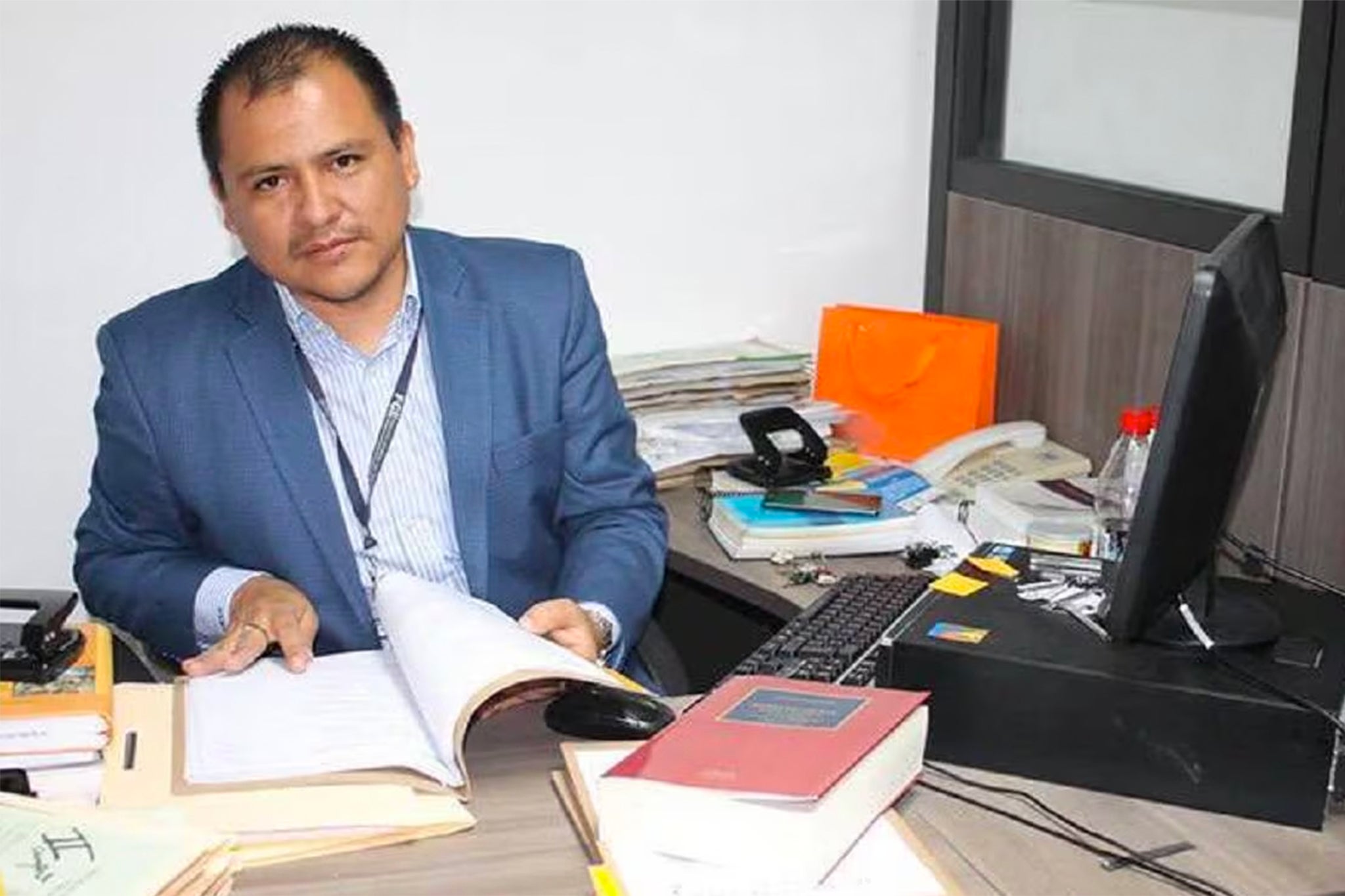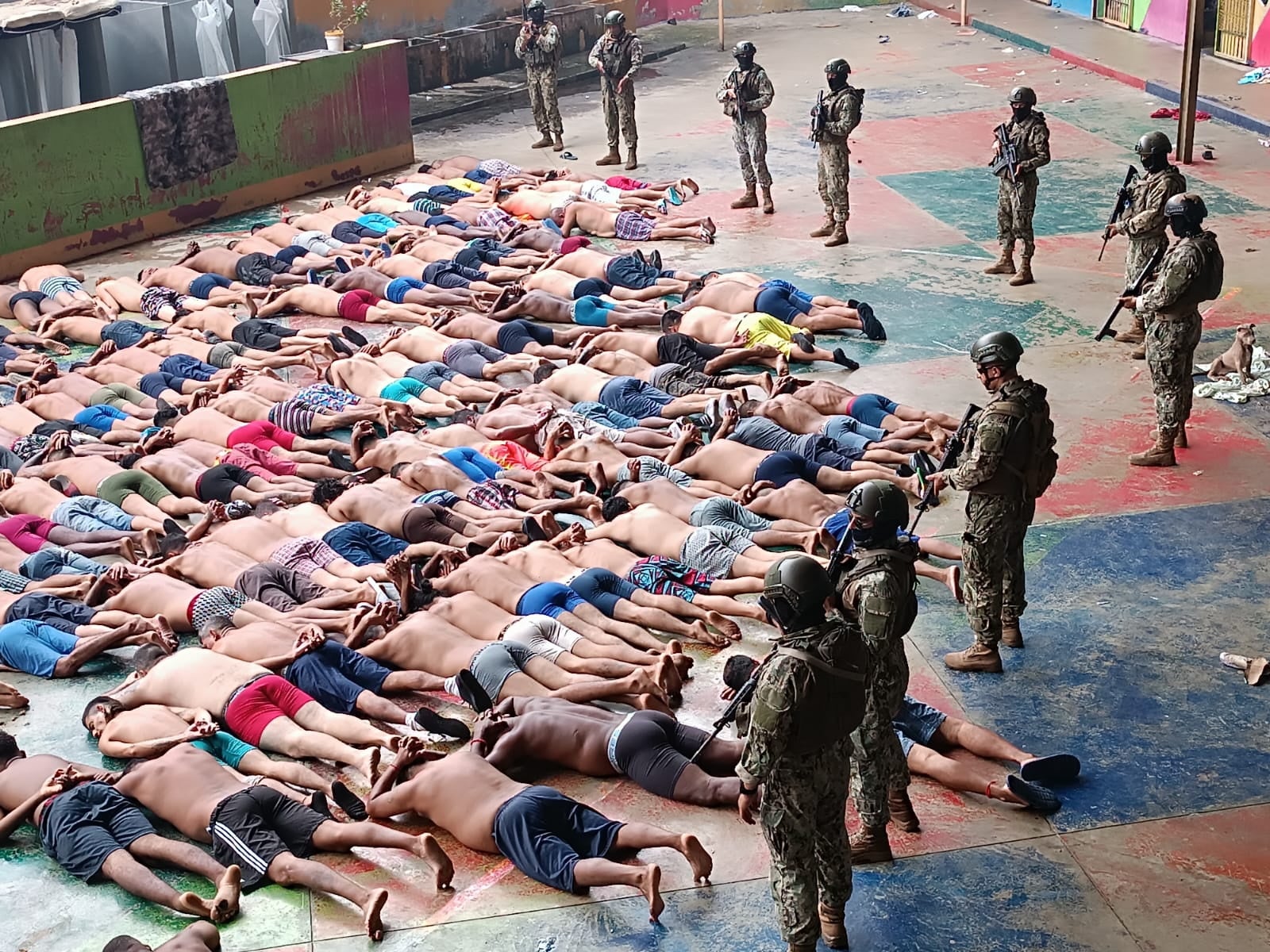The toll Ecuador’s dramatic surge in violence has taken on families: ‘We rarely leave the house now’
Lauren Crosby Medlicott speaks to Carla Angelica Bohorquez Luque, from the city of Guayaquil, about the fear spreading around her neighbourhood following a series of violent incidents perpetrated by powerful drug cartels


Carla Angelica Bohorquez Luque arrived home from working as a psychologist in the city of Guayaquil, Ecuador, when she heard her neighbour scream: “They have taken over Channel 10! They have kidnapped them!”
The channel was the state-owned TC Television. Luque ran upstairs to watch the unfolding crisis on her television with her mother, masked men waved guns and explosives during a live broadcast in the studio.
“They had several men with cameras lying on the floor,” the 35-year-old told The Independent. “They were pointing machine guns at them.”
It was part of a surge in violence across the country, which has seen the escape of two gang leaders from prison, hundreds of prison guards taken hostage and explosions in several cities. In response, President Daniel Noboa declared a 60-day state of emergency and ordered the military to “neutralise” 22 armed groups which he redefined as terrorist organisations. Days after the TV station attack, the prosecutor investigating the incident, Cesar Suarez, was shot dead.

Even though Luque would consider herself relatively unflappable, she felt lost thinking about the impact of the TV station attack and the wider violence could have on her family, particularly being pregnant.
“I felt like I was in a movie,” she says of that day. “I knew I was protected inside my house, but my brother, niece, and husband were outside running the risk of a stray bullet. When my husband managed to get back home, I burst into tears. I felt like I could breathe again.”
The violence started when it was discovered on 7 January that gang kingpin Adolfo Macías otherwise known as Fito, leader of Los Choneros, who was supposed to be moved to a different prison, was not in his cell.
“In response, Ecuador’s president declared the state of emergency and prison riots began across the country, with groups of organised crime resisting government action,” Rita Floyd, associate professor in conflict and security at the University of Birmingham, told The Independent. “Things got worse after the TV hostage-taking situation. Following this, President Noboa declared that the state is at war with the criminals. Rather than referring to these groups as organised crime which they are, he now referred to them as terrorists. This enables the government to adopt stricter measures, including deployment of the military internally and the use of lethal force.”
Luque had been fearful for years of drug cartels. “I always heard so many ugly things about the way these gangs acted – murders, rapes, and massacres in mass,” she says. “I feared for my safety and that of my country.”
After the TV studio was taken over, Luque says friends were terrified to pick up their children from school.
“There was no means of transportation, so they had to go on foot, watching scenes of terror as [gangs] killed other people,” she recalls. “They were running with their children through the streets, encountering armed groups walking through the city creating terror.”

Since the TV station attack on 9 January, Luque has not returned to work and "rarely" leaves the house.
“My whole normality has altered,” she says. “I can’t go for a walk. I can’t go shopping when I want – I prefer to wait for my husband so we can go together. We were going to travel for the weekend, but everything was cancelled. I was going to have an appointment about my pregnancy, but we cancelled.”
Everyone in her community is feeling the same fear. One of her friends witnessed motorcycles driving up and down local streets shooting people randomly.
“If he sees a motorcycle nearby now, his blood pressure drops,” she says.
Her parents don’t leave the house, telling Luque that they are afraid they may die because they are too old to outrun the gangs.
“My little niece is six years old and loves to go to the park, but now it is impossible,” she says. “On the day of the incident [at the TV studio], she did not see her mother and although she was not watching the news, she managed to hear the teachers at school and became very nervous when she called her mother and she did not answer. She became very ill and cried because she was afraid for her mother.”
While Luque says some children would love to be back in school – their safe and happy place – others are petrified to return.
“They are afraid to go to school... that there will be armed people at school, that they go to school and [come] back to find something bad has happened at home.”
While the violence throughout Ecuador is no longer splattered across headlines in the UK, Luque says it hasn’t stopped.
“You do not find armed people in the street killing for no reason,” she says. “But violence is present. There are still certain levels of danger on the streets, and it is still scary to go out.”
Floyd says that the government’s clampdown has been “quite successful,” with the officials claiming that more than 1,000 gang members have been arrested and some killed. But the violence is not over. According to Floyd, Ecuador is on its way to being a “failed state”, with the government having lost its monopoly on violence with criminal gangs challenging state authority.

“They [the gangs] operate out of prisons, but slowly dominate society, recruiting poor people into their ranks,” Floyd says. “The violence is essentially both a symptom of state failure, but also a consequence of state failure.”
The question, Floyd asks, is what comes after the current state of emergency ends.
“[President] Noboa wants to build two [high-volume] prisons and have prison barges for the most dangerous criminals to isolate them at sea,” Floyd says. “Many people are quite sceptical because the lack of control of the prisons is one of the main problems. Prisons are run by narcos.”
Luque says the memories from the last couple of weeks will never be forgotten by her community.
“The memory of those who have experienced the death of their relatives in a simple day at work, those who went to school calm, and they returned and found their houses burned and relatives dead, and the children who saw an explosion in front of their school – of course they are going to remember it”.






Join our commenting forum
Join thought-provoking conversations, follow other Independent readers and see their replies
Comments